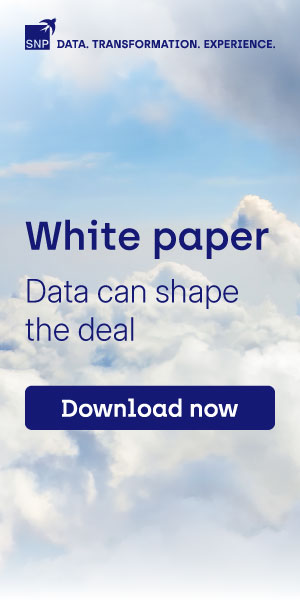Finance teams today face a constant barrage of challenges, from complex reporting demands and ever-changing compliance standards to the strategic necessity of accurate forecasting and budgeting. At the same time, they must guard against increasing cybersecurity threats. As a result, outdated systems, disparate spreadsheets, and disconnected processes are no longer sustainable.
Krishan Sharma, NetSuite Practice Lead at CloudPaths, highlights the core pain points he consistently observes with new SuitePaths customers: “Financial reporting and compliance is one of the key challenges. Finance teams are also grappling with getting the right reports and revenue forecasts that are accurate and on time.”
He also points to the difficulties posed by frequently changing accounting standards, complex taxation rules, the critical function of Forecasting, Planning, and Analysis (FP&A), and the omnipresent threat of cyber breaches.
- Managing mergers, subsidiary consolidations, localization, tax reporting, and revenue recognition and compliance.
- Cash Flow
- A/R and A/P Management
- Quickly ramping up the liquidity by implementing cost containment
- Effective timing of planned capital investments
- Analysis of operations efficiencies from costing and effectiveness
- Financial Reporting and Compliance
- Facts based Data presentation for Auditing has always been a challenge. Ensuring proper documentation, recording and reporting for audits.
- Regulatory framework changes & new accounting standards.
- Ensuring compliance to new accounting standards
- Taxation and Market Uncertainties
- Changing Technological landscape:
- Multiple systems (Best of breed of everything — ADP, Expensify, Salesforce, NetSuite etc.)
- Custom homegrown solutions still in place
- Ever increasing consolidated Reporting needs for every department, from multiple of these systems.
- Innovative products, especially on the service side and how they bundle, leading to complex revenue management rules, etc.
Advantage Design
So, how does NetSuite address these deep-seated issues? Sharma points to NetSuite’s fundamental design advantage. He states, “Unlike many legacy systems retrofitted for the cloud, NetSuite has been built by developers as a cloud product, and that’s why it can accommodate many modern-day challenges into the product.”
This cloud native architecture, coupled with a centralized database, provides a powerful foundation for integrated finance processes. It enables features like direct drill-down from reports to underlying transactions and built-in forecasting capabilities. Netsuite’s agility and twice-yearly releases ensure the platform stays current with new features and compliance requirements.
While NetSuite offers a comprehensive suite, CloudPaths distinguishes its SuitePaths practice by implementing and optimizing for specific business needs and maximizing value quickly. Sharma describes CloudPaths’ philosophy: “Our model is designed to empower our clients. We go beyond simple configurations and also provide real consulting. In areas where customers are not doing well, we would advise and show them how they can change those processes for better outcomes.”
This consultative approach, backed by the team’s collective hundreds of NetSuite implementations across various industries, allows CloudPaths to guide clients towards best practices, often leveraging NetSuite’s standard, out-of-the-box features rather than resorting to costly customizations.
Consulting firms these days need to have certified staff with best practices knowledge of the industry in general and of NetSuite product implementation as well.
Lower TOC by modeling our services shows that SuitePaths costs less than our competitors in the long run.
Tangible Benefits
CloudPaths has also tackled specific, complex finance requirements within NetSuite. Sharma gives the example of developing a “Pay When Paid” bundle for a client in the media industry to handle intricate vendor payment scenarios tied directly to customer collections.
“We also specialize in implementing NetSuite’s Advanced Revenue Management (ARM) module, navigating its complexities to ensure accurate revenue recognition based on fair value rules,” Sharma adds, “All while strategically avoiding customizations where possible to maintain upgradeability and ease of integration for future growth like mergers and acquisitions.” It is important to highlight that revenue management is a key component of business complexity. Service companies in specific are struggling at times due to innovative pricing and revenue recognition scenarios. Fair Value concept in conjunction with the discounted amounts adds a layer of additional complexity.
CloudPaths assists its customers:
- Achieve ROI: SuitePaths minimizes NetSuite implementation costs.
- Timely Closure of Periods: -We have clients who close their accounting periods on the 1st day of each month. The exception-reporting design that we have with most of our clients is an early warning system and helps fix the issues every day.
- Improved Efficiencies: Helping staff be efficient with processes such as invoicing, cash flow, bank reconciliation, financial reporting and audit specific data extraction etc.
Beyond initial implementation, CloudPaths assists companies transitioning from older systems like Oracle E-Business Suite or JD Edwards. Sharma emphasizes addressing the “resistance to change” during these projects with expert guidance, ample training, and demonstrating how the new system will make users’ lives easier—perhaps by cutting down period-close time or improving data accuracy. “We also advise on strategic data migration, seeing it as an opportunity to cleanse data and get users excited about the benefits,” Sharma says.
A well-implemented NetSuite finance solution can yield many advantages for a user. Sharma gives some examples of these benefits, which include:
- Consistent improvement in key performance indicators, such as reducing the days to close
- Increased accuracy and timeliness of financial reporting
- Enhanced forecasting and budgeting capabilities
- Streamlined cash flow management through better AP/AR processes
- More efficient bank reconciliation
AI and the Future
Looking ahead, CloudPaths is actively preparing for the impact of technologies like AI and Machine Learning in finance within NetSuite. According to Sharma, as NetSuite introduces features like predictive forecasting, CloudPaths is training its SuitePaths staff to leverage these tools effectively. “We see AI enhancing FP&A by providing deeper insights from historical and external data and improving transactional processing efficiency through anomaly detection, freeing up finance teams for more strategic work,” he concludes.
What This Means for ERP Insiders
Use expert guidance to improve processes. NetSuite provides a powerful, cloud-native ERP platform ideal for modern finance. Complementing this, CloudPaths offers real consulting, helping businesses align processes with NetSuite best practices and leveraging their deep industry and technical expertise from hundreds of implementations to drive efficiency and compliance. Currently, CloudPaths has several discounts and payment incentives being offered for new SuitePaths practice customers that sign up before May 30, 2025.
Navigate complexity with native solutions. CloudPaths’ specialization in implementing complex NetSuite modules like Advanced Revenue Management and strategically developing niche solutions prioritizes using native NetSuite features to ensure long-term system health and ease of upgrades. This approach ensures that businesses realize fast time to value and sustained success.
Smoother transitions and improve user adoption with the right implementation partner. CloudPaths actively addresses transition challenges like user resistance and data migration through dedicated guidance, training, and making users active stakeholders in the process, ensuring a successful move to NetSuite.






